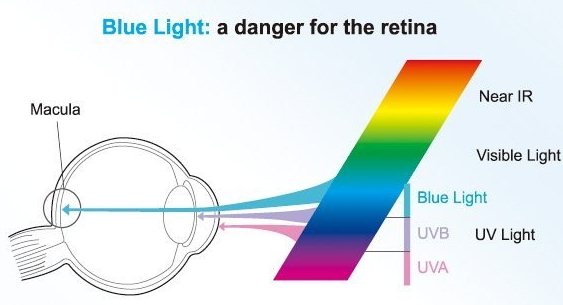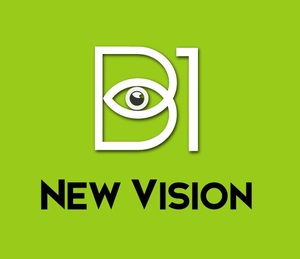Blue Light
Lens Solution for Every Age

1
Blue light and your vision
Blue light is all around us. It is emitted by the sun and artificial light sources. Be aware of over-exposure to this type of light as it can be harmful to the eyes.
2
Benefits of Turquoise blue light
Blue light is made up of two parts - the turquoise part has many health benefits. Blue-Turquoise light can be beneficial to our health. It regulates the circadian rhythm (our internal 'body clock'), which controls our sleep-wake cycle. So it is essential to a restful night's sleep. It can also boost brain activity, improving memory, mood, alertness and mental performance.
3
The risk of blue light
Light plays an essential role in everyday life. Light is fundamental for vision. It is needed for perception of the surrounding world: shapes, details and colours. Good Blue light (blue-turquoise part) is essential for overall well-being. It is necessary for regulation of the sleep/wake cycles, mood and cognitive performances. But light can also be the cause of premature eye ageing. Blue-violet light was recently identified as being harmful to retinal cells. Causing long-term damage to our eyes, it can accelerate the onset of age related Macular Degeneration (AMD).
4
Harmful violet light
As with UV rays, overexposure to blue-violet light can be harmful to the eyes. It can damage the retina, and potentially increase the risk of age-related macular degeneration (AMD), cataracts and photokeratitis (sunburned cornea) which can lead to temporary blindness.

What is blue light filter?
Blue light contributes to digital eye strain. When you're looking at computer screens and other digital devices that emit significant amounts of blue light, this unfocused visual "noise" reduces contrast and can contribute to digital eye strain.
The Risk Of Blue Light
Light is fundamental for vision. It is needed for perception of the surrounding world:
shapes, details and colours.
Blue-violet light was recently identified as being harmful to retinal cells. Causing long-term damage to our eyes, it can accelerate the onset of age related Macular Degeneration (AMD).
Blue-violet light increases the risk of retinal damage.
Cumulative exposure to blue-violet light has a double effect:
- It increases the production of lipofuscin, a metabolic waste material that accumulates in retinal cells with age. It is commonly known as an "age marker" that may be found in other organs.
- It activates lipufuscin phototoxic components, causing retinal cell death. The accumulation of lipofuscin in retinal cells can contribute to the deposition of drusens in AMD.
Solution
Recommendation
https://www.huffingtonpost.com/dr-matthew-alpert-od/blue-light_b_5570433.html

